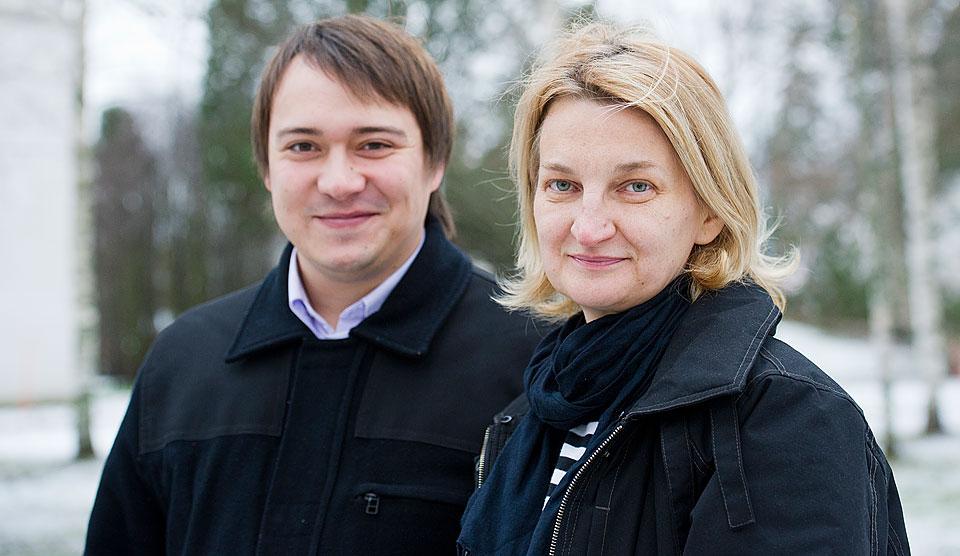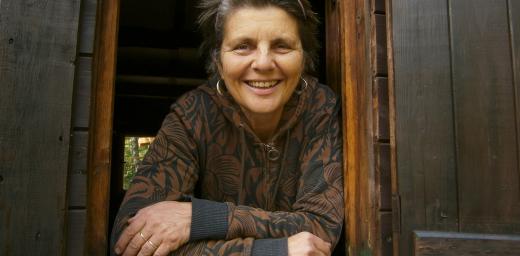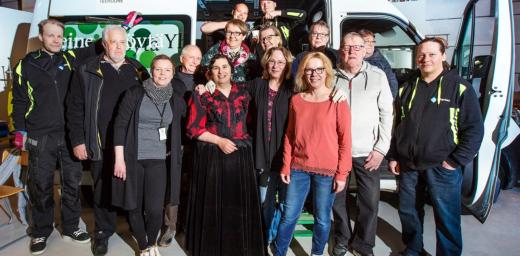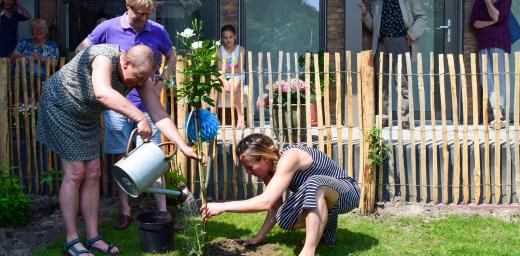People Flock to Serbian Province of Vojvodina Expecting Wealth

(l to r) Rev. Vladislav Iviciak, Marija Parnicki, both Slovak Evangelical Church of the Augsburg Confession in Serbia © LWF/Juho Kuva
Influx Increases Diakonia Work for Lutheran-led Ecumenical Program
People seeking a better life flock to the autonomous province of Vojvodina in the Republic of Serbia.
It is the most prosperous region of the country, but it has experienced economic woes since the end of the Yugoslav federation.
Vojvodina residents say it still has great potential although the civil war in the former Yugoslavia has undermined much of the social infrastructure.
“Basically since the civil war in Yugoslavia [in the early 1990s] and the bombing of Serbia in 1999, our economic situation has been poor,” says Marija Parnicki, a psychologist who works for the Ecumenical Humanitarian Organization (EHO), in Novi Sad, Vojvodina’s capital.
She works with Rev. Vladislav Iviciak, the director of the EHO, who says that due to the area in the north of Serbia still being a pocket of relative prosperity it has become a magnet for migrants.
“The influx of Roma and other people increases our diaconical work,” says Rev. Iviciak who has a staff of 36 with hundreds of volunteers who support them.
With more than 25 ethnic groups and six official languages, Vojvodina is more diverse than the rest of Serbia.
The area has experienced diverse rule, having at one time or another been part of the Roman Byzantine, Austro-Hungarian or Ottoman empires, under the occupation of Nazi Germany and part of Yugoslavia as well as other countries earlier in its history.
Iviciak and Parnicki spoke to Lutheran World Information (LWI) during a December workshop in Finland which focused on the theme “Seeking Conviviality, Re-forming Community Diakonia in Europe.” It was held near Helsinki, at Järvenpää, on the campus of the Church Advanced Training College.
“We have learned much from the stories of all the participants at this workshop in Finland,” said Iviciak.
The workshop attended by participants from 14 countries in Europe was part of a three-year process that aims to develop holistic diaconal responses by The Lutheran World Federation (LWF) member churches in view of growing poverty and marginalization in Europe.
“I am a pastor in the Slovak Lutheran Church in Serbia, a minority church in our country,” explained Iviciak.
Parnicki added, “In Serbia most people don’t know about Lutherans. Many consider us as a sect and not as a church, but in Vojvodina we are quite recognized.”
Vojvodina has great potential, according to Iviciak who noted, “We have energy resources, fertile ground that is underutilized. We have hot springs.”
Yet he rued, “Poverty is rapidly increasing. There is current data showing that each day about 400 people are losing their jobs in Serbia in general. In Vojvodina it is 70 per day. A lot of unfair privatization has taken place. The government has been selling good enterprises and those firms are bought by tycoons.”
News reports show that many of the enterprises are bought by Russians.
“It seems only yesterday we were all saying we were communists. We learned at school about equality and rights for the labor class. Yet the highest members of the party are now the biggest capitalists,” Iviciak remarked.
He talked about the impact of the global economic crisis. “Of course we feel it. It also affects the funding for our work. Some donors have difficulties sustaining levels of support. A lot of people write to us asking for jobs.”
Their work in diakonia with the EHO involves projects with LWF member churches and representatives of other churches in Vojvodina.
“Working in the project center for people living with HIV and AIDS, we teach people how to work with those infected and how to advocate for their rights and the removal of the stigmatization of those afflicated with the condition,” Iviciak explained.
(628 words)





